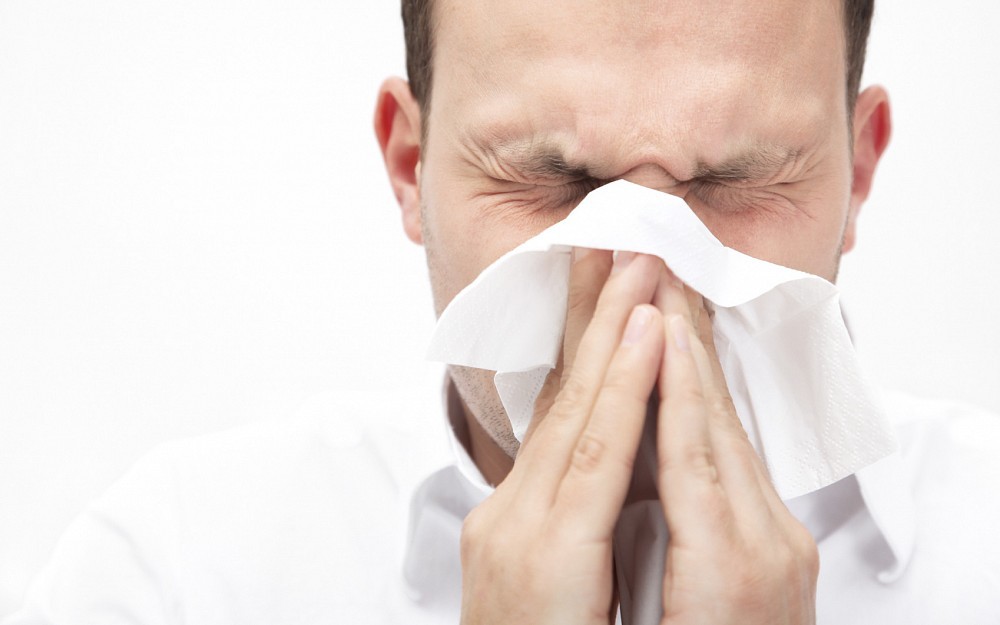
UC HEALTH LINE: Tips to Avoid 'Falling' Victim to Autumn Allergies
CINCINNATIIts almost that time again: bonfires, playing in piles of leaves, and, for some, continuous sneezing and stuffy noses.
Alfred Sassler, DO, a UC Health otolaryngologist and associate professor at the UC College of Medicine, says that the season for fall allergies is rapidly approaching but that it doesnt have to mean misery for those who experience them.
"Were seeing lots of patients who are having difficulty with nasal and sinus obstruction, says Sassler who focuses on general ear, nose and throat issues in adults and children, nasal and sinus disease, chronic tonsil and ear infections, thyroid and other neck masses, snoring and sleep apnea surgery as well as facial skin cancer removal and reconstruction.
"This is one of the times during the year that we expect to see it, and in Greater Cincinnati, weve begun ragweed season which causes some people in the community quite a bit of trouble.
Sassler says additionally mold counts will begin to rise due to wetter weather and fallen leaves, causing additional problems.
"Congestion, sneezing, nasal obstruction, facial pressure and pain, whether seasonal or not, requires some detective work for the person it affects and his or her doctor, he says. "If one is allergic to pollen, try not to drive with the windows down and reduce the amount of time spent outdoors or participate in outdoor activities during the evening. Pollen counts tend to be higher in the early morning hours.
"Also, nasal and sinus rinse kits can help by removing particulate matter. This may help prevent days of symptoms after exposure.
Sassler says problems could be improved by controlling the environment around youfor example, if you experience symptoms during or after your work day and you are taking part in an activity that is dusty like woodworking or sheetrock finishing, you could benefit from wearing a mask.
Indoors, he adds people should be aware of pet dander and dust mites, and if the problem is consistent, it may be a larger issue.
"A persistent sinus problem can lead to infection which could trigger a worsening of asthma or chronic bronchitis, and there could even be a polyp in the sinuses or nose that is causing an obstruction, he says. "We now have the ability to use telescopes and other special instrumentation to remove such growths and improve nasal and sinus function without external incisions and or yards of nasal packing afterward.
He adds that although there are many effective treatments sold over-the-counter, mixing them or using one that isnt quite right for the problem may make things worse.
"There are a number of non-surgical medical treatments, including anti-inflammatory and antihistamine sprays, he says, adding that specialists can even test sufferers to see what is causing the problem immunologically. "Knowing specific sensitivities can lead to more effective environmental controls and even direct immunotherapy, like shots or oral drops.
"Over-the-counter medications can often help as well, but sometimes going to a doctor who can help you sort things out makes a huge difference. Taking too many medications or the incorrect ones can sometimes make things worse.
"Autumn is a great season, but it could be better without sniffling and sneezing. If fall allergies limit your lifestyle or continue through the winter and beyond, see a specialist for best health.

Alfred Sassler, DO
Related Stories
Is ketamine the answer to treatment-resistant depression?
May 16, 2024
The University of Cincinnati's Stephen Rush joined WVXU's Cincinnati Edition to discuss the use of ketamine and esketamine to treat treatment-resistant depression.
UC study: Severe ischemic strokes rare in total patient...
May 15, 2024
The University of Cincinnati’s Yasmin Aziz will present research at the European Stroke Organisation Conference that found severe ischemic strokes with the most severe damage are rare in the total stroke patient population.
Increasing syphilis cases highlight treatment barriers across...
May 14, 2024
The University of Cincinnati's Carl Fichtenbaum spoke with the Cincinnati Enquirer about a recent report that found Hamilton County syphilis cases reached a six-year high in 2023.
